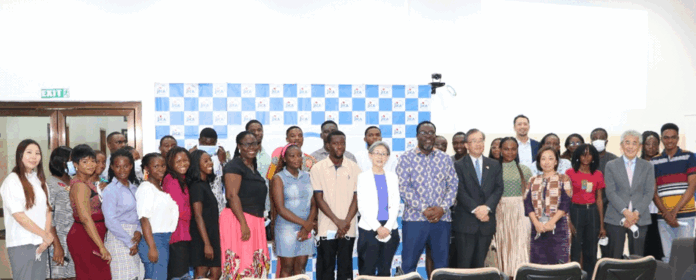
The University of Ghana (UG), in collaboration with the Japan International Cooperation Agency (JICA), has initiated a comprehensive study exploring the impact of artificial intelligence (AI) on Japanese media. This initiative is part of a broader academic and technological exchange program aimed at understanding how AI is reshaping media landscapes globally, with a particular focus on Japan’s evolving media environment.
The study is being conducted under the auspices of the Centre for Asian Studies at UG and involves a series of seminars, collaborative research, and academic exchanges between Ghanaian scholars and their Japanese counterparts. The objective is to examine how AI tools are being integrated into various aspects of the Japanese media ecosystem, including news production, content dissemination, audience engagement, and media ethics.
Researchers are particularly interested in the dual-edged nature of AI in media: while AI offers efficiency and enhanced data processing capabilities, it also raises concerns about misinformation, job displacement, and ethical challenges in journalism. The project aims to investigate how Japanese media organizations are navigating these dynamics and what regulatory frameworks are being developed to ensure responsible AI usage.
The collaboration with JICA allows for the inclusion of case studies from leading Japanese media houses, showcasing real-world applications of AI, such as automated news writing, deepfake detection systems, and AI-powered recommendation engines. These case studies serve as a valuable learning resource for Ghanaian academics and policymakers, who are increasingly grappling with similar technological disruptions in their own media landscape.
Through this initiative, UG and JICA hope to foster a deeper understanding of AI’s transformative role in global media, create avenues for academic exchange, and contribute to capacity-building in Africa’s higher education sector. The program also encourages comparative studies, allowing researchers to analyze similarities and differences in how AI is perceived and applied in Japanese and African contexts.
In addition to academic benefits, the project is expected to inform future policy development in both countries, particularly in terms of media regulation, digital literacy, and technological innovation. By situating this research within a cross-cultural framework, the UG-JICA partnership exemplifies the importance of international cooperation in addressing the complex challenges posed by emerging technologies.
Overall, the initiative underscores a shared commitment to responsible AI integration and the pursuit of knowledge that transcends borders, enhancing mutual understanding between Ghana and Japan in the digital age.
Leave a Reply